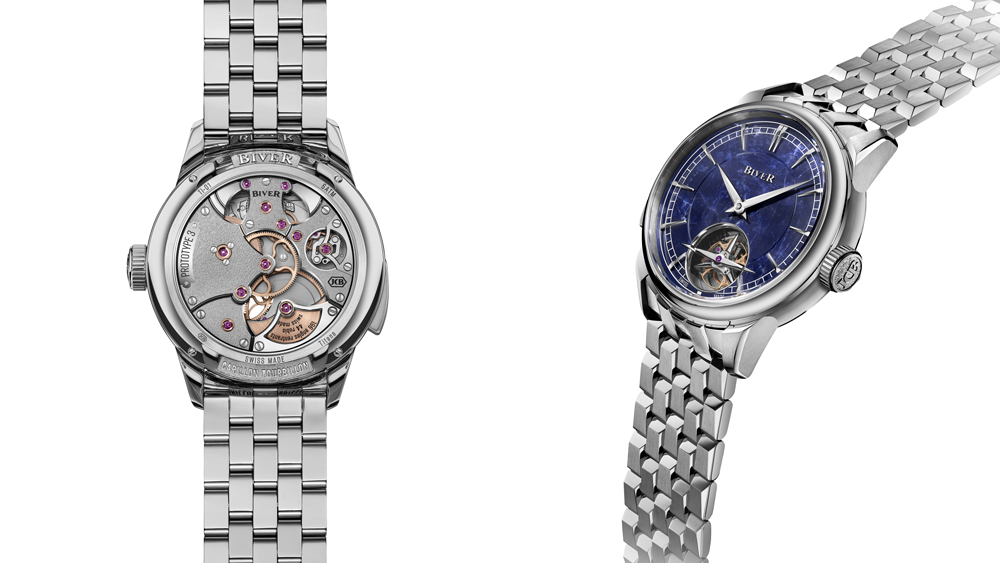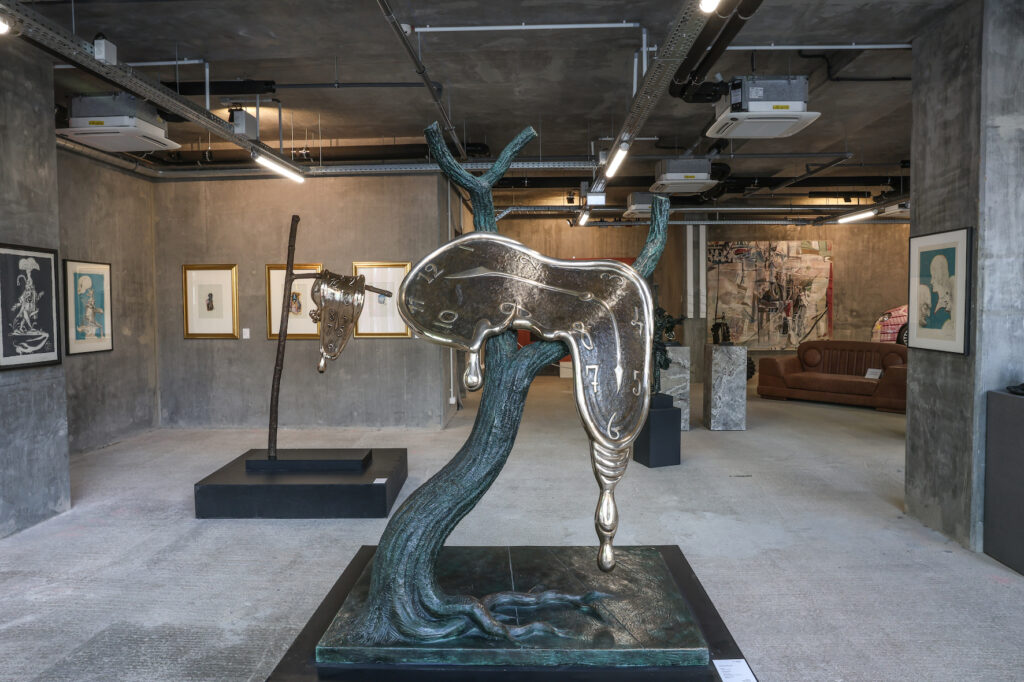
Jean-Claude Biver is ready for his swan song.
After spending half a century in the watch industry, which he revolutionized with his exuberant style of leadership and visionary approach to marketing, the watchmaking legend—he famously acquired rights to the name Blancpain in the early 1980s for 22,000 Swiss francs (about $23,700), before remaking Omega, Hublot and TAG Heuer into modern-day megabrands—reemerged from retirement last year to work with his 22-year-old son, Pierre, on a boutique brand bearing the family name.

On Sunday, at a packed lunch event at Biver Watches’ headquarters on the outskirts of Geneva, father and son took to the stage to formally introduce the brand, and to unveil its first timepiece, the Carillon Tourbillon Biver. The $550,000 chiming minute repeater comes in an 18k yellow gold case on an integrated gold bracelet with one of two dials: gray obsidian or blue sodalite. It is due to be released in a limited edition of 12 pieces (approximately four of which will land in the U.S. at Material Good, the brand’s exclusive distributor for the states) starting in September.

“It’s an incredible comeback, but it’s also a little bit goodbye,” the elder Biver said to the crowd of journalists, retailers and industry luminaries who’d gathered at the 18th-century farmhouse in Givrins on the eve of Watches and Wonders to celebrate the brand’s international launch. (The crowd included Max Büsser of MB&F, Edouard Meylan of H. Moser & Cie. and Yoni Ben-Yehuda of Material Good.)

“Because at 74 years, what can I expect?” he added. “Maybe if I’m very good at my gym, maybe if I don’t eat so much, I can do another five to 10 years. But I am close to the end.”
The emotional speech was not without its moments of humor, as father and son displayed a rapport that made clear how happy they are to be working together.

“He’s an incredible man, an incredible manager and we have so much admiration to work with him, listen to him and have guidance from him,” Pierre said.
Kicking things off with the minute repeater complication was something of a spiritual decision, the younger Biver explained.
“The chronograph, to my mind, symbolizes dynamism, movement—it’s going forward,” Pierre said. “Perpetual calendars, or any calendar, symbolize memory—they track the time. And the minute repeater by the fact that it creates sound, it creates vibration, is love because love is vibration. We wanted to start with the most important spiritual value.”





